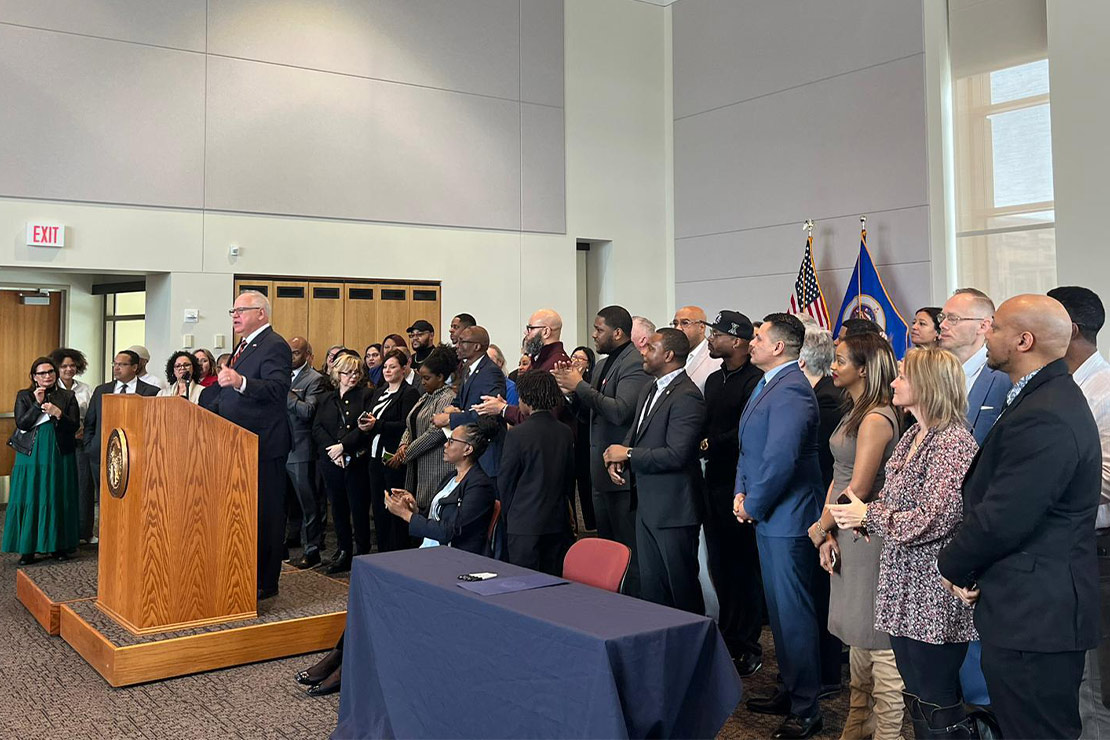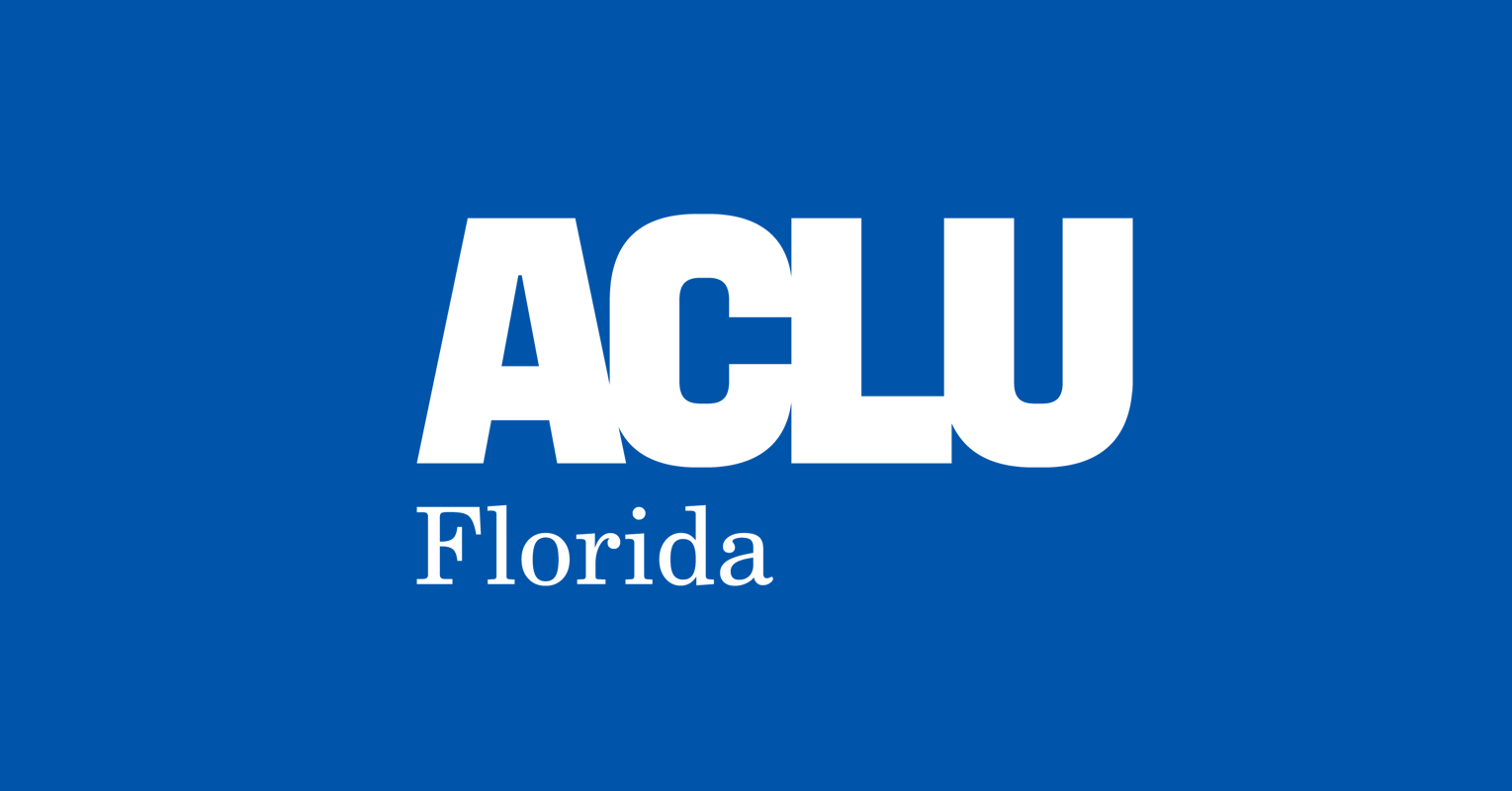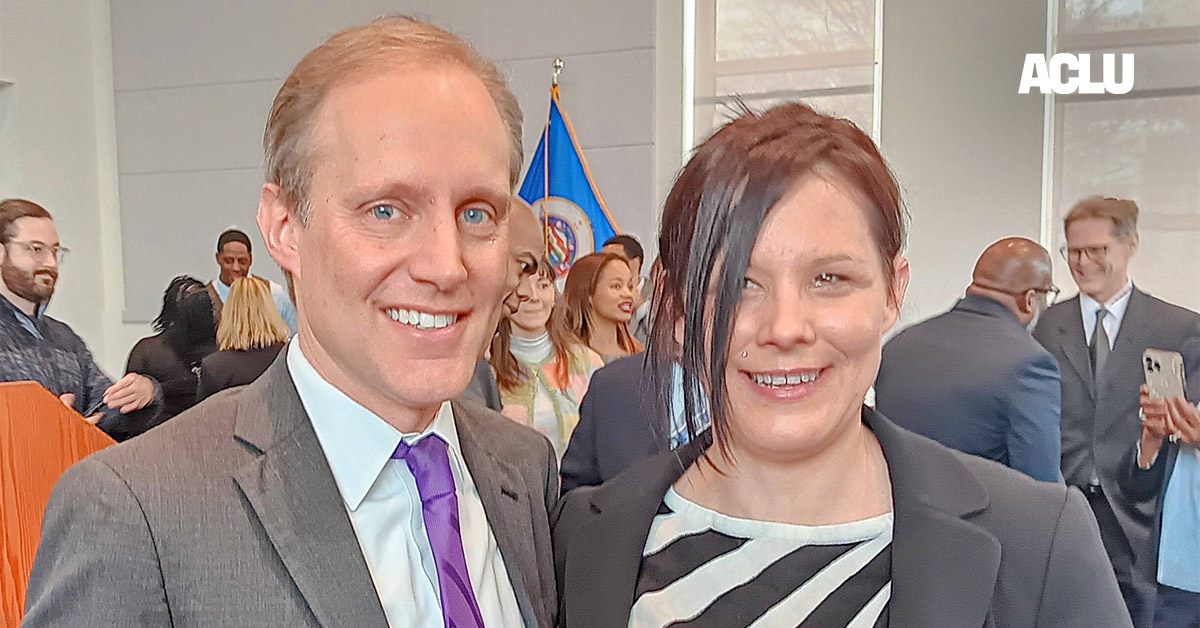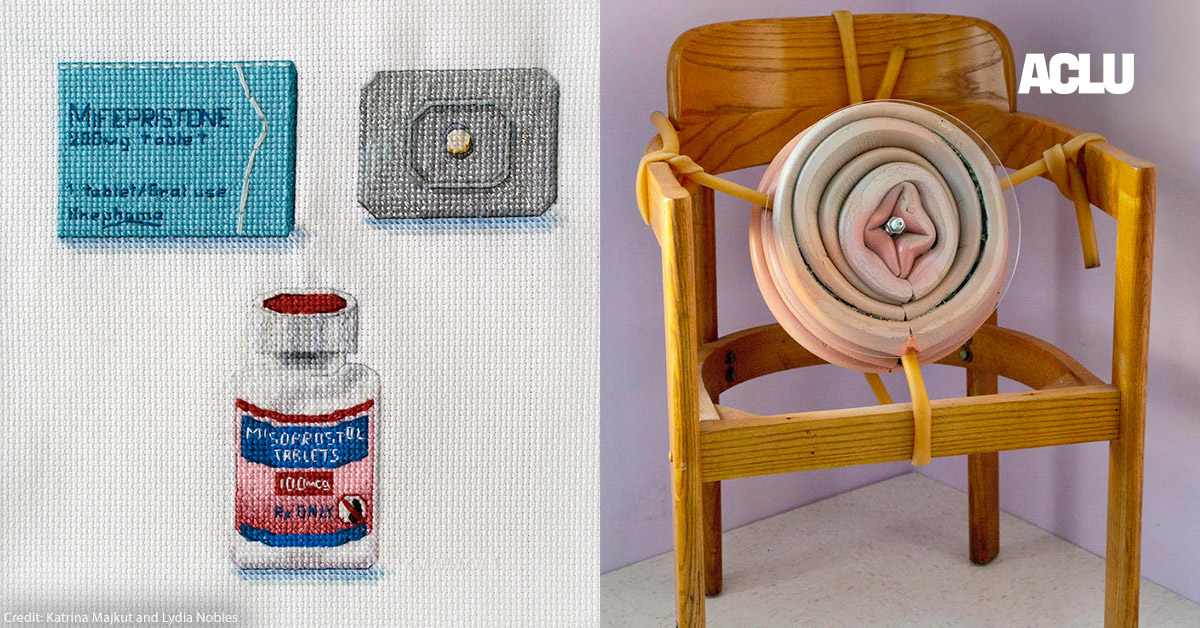When I was convicted of a felony, I knew I wouldn’t be able to vote, but it didn’t sink in until I got my sentence: 40 years of probation. That meant 40 years without a vote. I wouldn’t get to the ballot box again until I was 71 years old.
The moment it hit me, I felt separated from the world, from my own country. Just cut out of society completely. I didn’t even know it was possible to fight back until I became the lead plaintiff in a lawsuit challenging the law, brought by the ACLU and the ACLU of Minnesota.
It wasn’t easy putting myself out there. For 15 months, we faced attacks from all sorts of opponents — groups filing appeals, people saying horrible things about me and about addiction — but not once did I ever feel like giving up. We took our case all the way to the top, from the Court of Appeals to the Minnesota Supreme Court. Even when the court ultimately ruled against us, I never lost hope. Then, last month, Minnesota’s state legislature passed House File 28, restoring the right to vote for people with felony convictions, and restoring my faith in our lawmakers.
Last month, Minnesota’s state legislature passed House File 28, restoring the right to vote for people with felony convictions, and restoring my faith in our lawmakers.
I still remember the day I cast my first ballot. At the time, I was working as a cook chef in a restaurant in Big Lake called Brussels, and didn’t even know it was Election Day until the manager came in and said, alright, let’s all go and vote. At first, I was just happy to get out of work for a little while.
Like a lot of people, I thought my vote didn’t matter, that just one person couldn’t bring about change. But my boss changed my whole outlook. The whole process of casting a ballot that day turned out to be so much fun, and it really made me feel like my voice was important and that it should be heard. I hope all the people who were just re-enfranchised get to experience that same feeling when they exercise their hard-fought right to vote.

Jennifer and other clients and activists visited the Minnesota Department of Revenue to watch Gov. Tim Walz sign House File 28 into law in March 2023.
Voting helps to connect the divide between rich and poor, Black and white. The moment we cast our ballot, we are taking part in something much bigger than ourselves. Something other people are a part of, too. It’s especially important for people who have been incarcerated, who face stigma when they return to their communities. Voting makes us feel like we belong, like we can actually reintegrate into society and have the power to shape our futures. It’s a great opportunity to represent us in a positive light, and to take down that stigma that keeps us feeling apart when we return to our communities.
The passage of House File 28 was a major victory, but it’s not the end of our fight. We need to get the word out so people even know they can vote in the first place. A lot of conversations need to happen within communities about race and its role in this issue. Communities of color have been historically punished or blocked from the ballot, including by felony disenfranchisement laws, which are rooted in the Jim Crow era and continue to make racial disparities in voting even worse. We need to confront these challenges if we’re going to really get out there and empower people to vote.
Voting makes us feel like we belong, like we can actually reintegrate into society and have the power to shape our futures.
There are so many other things in our system that are broken, like how the law treats addiction as a crime instead of a real health issue that needs medical treatment. My next battle is for a federal five year cap on probation, so even in states where people with felony convictions still can’t vote, it’s only for five years — not 40. And we still need to take on the politicians who oppose vote restoration. But I feel like opinions are changing. When I went to Congress to testify and meet with lawmakers, even those who have been major opponents of vote restoration seemed to be shifting their views a little bit.
Being a part of the ACLU lawsuit was probably the most empowering thing I’ve ever done. I could show people in high ranks that we’re not going to go down without a fight. And when I went to see the governor sign House File 28 into law, the lawmakers I met were so non-judgmental and welcoming. It’s why I’ve changed gears in my career goals.
After I was released, I got my degree to become an addiction counselor so I could help people struggling with the same issue I had been. Now I’m thinking about going back to school for a degree in political science, so I can fight for change at the macro level. I never thought I could even be in the same field of people, but I feel empowered after this huge win. I can’t wait to take my son to the polls in the next election. He’s just 2 years old, but it’s never too early to show him what it means to have a second chance at life. It’s why I named him Chance.
Everybody should have a say in who they want leading their country or their state. But to do that, you have to vote.







